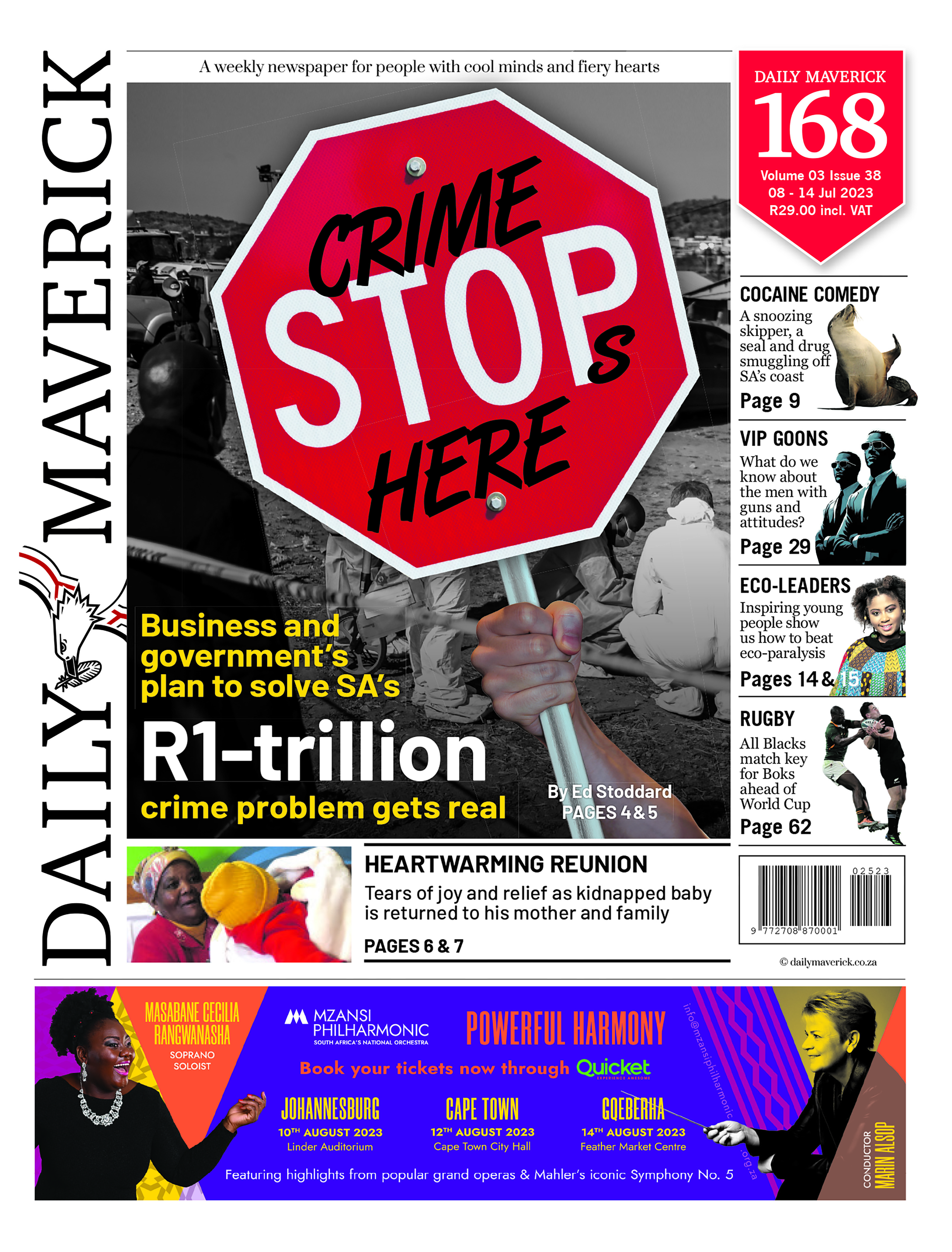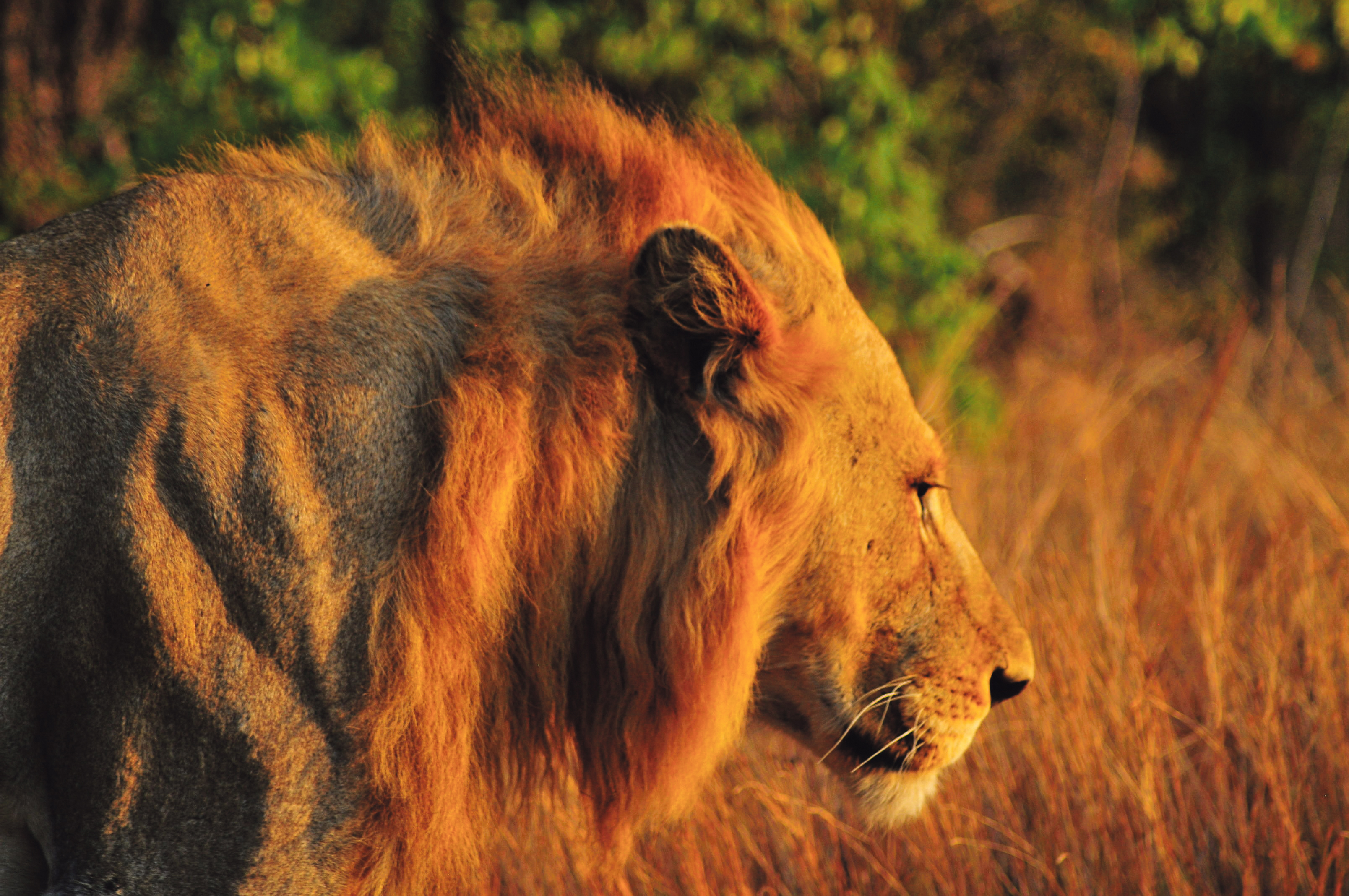If, like me, you grew up in South Africa in the turbulent 1980s, your distrust and suspicion of white people tends to kick in especially in spaces where, for many years, darkies were excluded on the basis of their race.
I’m talking about a place like the Kruger National Park where, until the end of legislated apartheid in 1994, black people were only allowed as labourers who tended to the needs of whites, who were indifferent to their exclusion.
When I started visiting the Kruger in the late 1990s, mostly as a solo traveller in search of the unknown, I often felt that I was like one of the attractions in the park, given the stares I received from white folks.
At public facilities like restaurants and toilets some white folks would nervously grab their bags and cameras at the sight of this lone black traveller.
Even some of the people in my circle, young black men and women, just couldn’t understand why a young man from ekasi would be so fascinated by wildlife.
/file/dailymaverick/wp-content/uploads/2023/07/hyena-litter3.jpg)
“So you spend money to travel so far to see a lion?” some would ask. It became somewhat of an irritating joke. But even the black staff in the Kruger appeared not to know how to treat one of their own, who was not there as a fellow employee of the park but as a tourist.
It was most disheartening to observe how many years of racial exclusion had affected the psyche of the black workers there.
The result was that, sometime in 2003, I penned a column in the now defunct This Day newspaper decrying this kind of behaviour by staff who seemed to resent serving a fellow black.
Fortunately, the pen proved mightier. South African National Parks (SANParks) took an interest in the piece I had written and asked my views on what it needed to do. I suggested that, as a start, its staff attend a workshop to learn to accept us as tourists and treat us equally (some still need advanced workshops on this, sadly). It also needed to expose more black journalists to game parks and the accompanying lifestyle so that their readers would also begin to embrace wildlife tourism as a pastime for all, and not only for a few privileged whites.
In my eight-hour solo trek up north in the park from Skukuza to Phalaborwa recently, a distance of about 212km, I met perhaps only one car carrying five black tourists.
Research shows the racial exclusion of black people from conservation and wildlife spaces was not only a South African practice. Writing for Voice of America in March 2021, Marissa Melton reflected on the legacy of racial exclusion in national parks in the US.
“Many experts believe that African Americans don’t take full advantage of the country’s national parks because of a history of segregation. For the first few decades of the national parks’ existence, African Americans could not be sure they would be welcome in the parks,” Melton wrote.
Read more in Daily Maverick: The UK government wants to tell Africans what to do with our wildlife — this is colonialism all over again
Fuelling this air of exclusion, she added, was that “early ads for the parks were aimed at white audiences. Photos from that time show only white visitors.”
SANParks has since introduced some measures and packages targeting black people and these seem to have been somewhat impactful. The organisation revealed that during the 2020/21 financial year, black South Africans made up 30% of local visitors to the Kruger National Park. With black people making up the vast majority in South Africa, this number is problematic.
Lions via Eastern Europe
In my eight-hour solo trek up north in the park from Skukuza to Phalaborwa recently, a distance of about 212km, I met perhaps only one car carrying five black tourists. I did meet other black people, though. But they were staff, suppliers on delivery duty and rangers.
Perhaps this is the reason a white motorist travelling in the opposite direction towards Letaba signalled me to stop after I had just turned left onto the H9 road from Skukuza towards Phalaborwa Gate in the late afternoon.
The man travelling in an SUV with what I assumed were his family greeted me politely in a heavy Eastern European accent after I’d stopped and wound down my window. “You are looking for ze animalz?” he asked with what seemed to be compassion.
“Yes,” I responded with excitement. “Okay. Just go straight, on zis road, you see lots of ze animals, hyenaz, lions, zey sleep on ze road.”
What? Lions on the road? I couldn’t believe my luck. I thanked him and moved right ahead. I had been on the road almost eight hours already, having left Skukuza, 160km to the south, at about 7am.
Read more in Daily Maverick: On patrol with the Black Mambas, the all-female anti-poaching unit in the Greater Kruger area
About half an hour from Tshokwane I saw a few vehicles parked on a dirt road off the Skukuza-Letaba road. Curious, I turned off the main road and stopped next to one of the vehicles. I scanned the bush and there in the distance, about 150m away, I saw the bright, fawn underbelly of a lion, lying face up in the dirt to soak up the sun. Wow!
Back on the H9 after my encounter with the polite man with a heavy Eastern European accent, I drove about 20 minutes from where I had met him. Dejection was beginning to set in, as I wondered if the man was just pulling a fast one on me, or if he was bored and just wanted to talk to a black man by claiming lions and hyenas were lying on the road.
/file/dailymaverick/wp-content/uploads/2023/07/klipspringer2.jpg)
But suddenly I spotted something moving on the left shoulder of the road. A hyena mom was lazily soaking up the late afternoon sun with her litter. Another was lying on its stomach on the opposite side of the road. And it was clear they weren’t going anywhere despite the constant shutter from my camera.
But with time ticking, I decided to get on with the journey so I would make it to the gate before closing time. And just as the man in the SUV had told me earlier, further on, lying on the tar, was a female lion. A male lion lay in the grass just a few metres away from the lioness, who was lying on her side with no care in the world.
Later that evening, as I processed the photos from my lion encounter, I thought of the white man with the heavy Eastern European accent. I wondered why he would ask if I was looking for animals? Was he perhaps, like me, also wondering where all the black tourists were?
Hopefully, in the near future, the majority of local visitors will be black South Africans helping to undo the ugly legacy of racial exclusion. After all, these parks belong to all, including darkie bros, sistas, gogos, mkhulus and bambinos. It is, after all, our heritage. Mukurukuru Media/DM
Lucas Ledwaba is the editor and founder of Mukurukuru Media.
This story first appeared in our weekly Daily Maverick 168 newspaper, which is available countrywide for R29.





 The king of the African bush relaxes in the Kruger National Park. (Photo: Lucas Ledwaba / Mukurukuru Media)
The king of the African bush relaxes in the Kruger National Park. (Photo: Lucas Ledwaba / Mukurukuru Media)